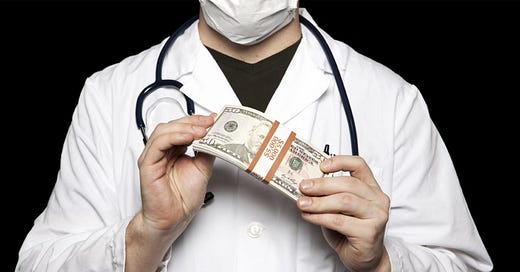A ruling this March by the British pharmaceutical watchdog, the Prescription Medicines Code of Practice Authority (PMCPA), upheld a complaint received in February 2023 alleging that Pfizer “misused” social media “to misleadingly and illegally promote their Covic vaccine.” The regulatory body ruled that based on their investigation, Pfizer had violated f…
Keep reading with a 7-day free trial
Subscribe to THE FREEDOM BLOG to keep reading this post and get 7 days of free access to the full post archives.




